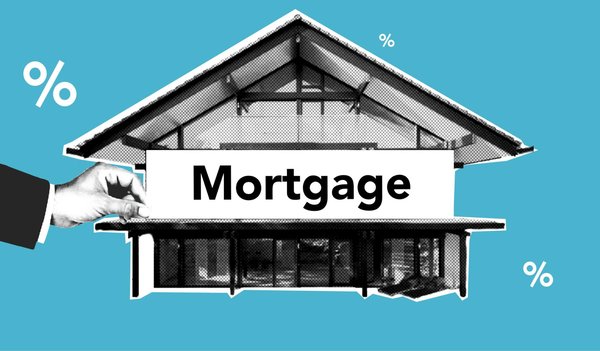Explore Every Corner of Modern Living
Browse our diverse collection of topics and find the insights you need
Automotive
Cars, vehicles and driving
Business
Business and economy
Cooking
Recipes and culinary arts
Finance & real estate
Finance, investment and property
Health
Health, wellness and wellbeing
Home & living
Home, decor and lifestyle
News
Latest news and current events
Pets
Pets, animals and companions
Sports
Sports, fitness and competition
Technology
Tech, gadgets and innovation
Woman / fashion
Fashion, beauty and lifestyle
What Our Readers Say
Join thousands who trust Livegreenslc for their daily dose of inspiration
I check Livegreenslc every morning with my coffee. The automotive section has helped me understand car maintenance so much better, and the cooking features have transformed my weeknight dinners. It's my go-to resource for everything!
The variety is incredible. One minute I'm reading about sustainable home living, the next I'm discovering new tech innovations. The writers really know their stuff and explain everything clearly without talking down to readers.
As someone juggling work and family, I appreciate how the articles get straight to the point. The finance and real estate guides have been especially helpful in making informed decisions about my future.
Latest articles
Our recent publications

How Has the UK Automotive Industry Evolved in Recent Years?
Understanding the UK automotive industry evolution requires examining several pivotal shifts that ha...

How is the UK automotive sector adapting to electric vehicle trends?
The UK automotive industry is witnessing a rapid transformation as electric vehicle market trends sh...

What Challenges Do British Automotive Manufacturers Face Today?
The British automotive industry is navigating a complex environment, marked by both challenges and o...

How Can British Enterprises Embrace Sustainability Effectively?
Effective sustainability strategies for British enterprises start with a thorough assessment of curr...

How Can UK Businesses Increase Their Sustainability Efforts?
When aiming to improve business sustainability UK efforts, the first actionable step is assessing yo...

What steps can UK businesses take to improve diversity and inclusion?
Building workplace inclusivity starts with clear, committed steps. One of the most crucial diversity...

How can you prepare a perfect English breakfast at home?
Creating an authentic English breakfast involves assembling a blend of key breakfast essentials and ...

What are some traditional UK soups to warm up with?
Traditional British soups have long been cherished for their comforting qualities, especially during...

What are the secrets to a flaky crust in a homemade meat pie?
A flaky crust is a delight in baking, often sought after in pastries and pies. The science behind ba...

How Can First-Time Buyers Strategically Enter the UK Real Estate Market?
Before diving into the UK property market, thorough research and understanding of the buying process...

How do inflation rates affect property investment in the UK?
Inflation, by definition, is the rate at which the general level of prices for goods and services ri...

What Are the Most Common Challenges Faced by Investors in the UK Real Estate Market?
Navigating the UK property investment challenges begins with understanding the impact of high proper...

How can the UK reduce waiting times for medical services?
Long NHS waiting times are primarily driven by several intertwined factors. One of the main reasons ...

How Can UK Healthcare Be Enhanced for Better Patient Satisfaction?
UK healthcare challenges significantly impact patient satisfaction issues, with systemic factors inf...

What are the effects of Brexit on UK healthcare?
Brexit's impact on the NHS has been swiftly evident in several operational areas. One of the most im...

How Can British Interior Design Styles Enhance Your Home's Ambiance?
British interior design is defined by a set of hallmark motifs and distinctive architectural details...

How can you design a family-friendly living space in the UK?
Designing family-friendly spaces in UK family homes requires a balance of safety, functionality, and...

How Can You Transform Your Home into a Cozy Haven for Autumn?
Creating a cozy autumn home relies on atmosphere as much as on decor. Key characteristics that evoke...

How Might Recent UK Policy Changes Impact Future Economic Growth?
Recent UK policy changes have encompassed fiscal, monetary, and regulatory adjustments aimed at stim...

How Might Upcoming UK Policies Impact Global Relations?
Upcoming UK policies are set to reshape UK foreign policy with significant effects on global relatio...

How Can Pet Ownership in the UK Improve Child Development?
Pet ownership benefits UK children in several profound ways, shaping their overall child development...

How Can You Enhance the Lives of Pets in the UK?
Caring for pets in the UK demands tailored daily routines that meet the needs of various common spec...

What Unique Care Approaches Can You Use for Your Pets in the UK?
The UK pet care landscape embraces numerous unique pet care UK approaches that distinguish it from o...

How Can UK Athletes Revolutionize Global Sports Events?
UK athletes have significantly shaped modern sports through innovative training approaches and techn...

What Makes UK Sports a Unique Cultural Phenomenon?
The origins of British sports trace significantly to the 19th century, a period marked by the emerge...

What strategies are being implemented to increase diversity in UK sports?
In the UK, diversity initiatives in UK sports have gained significant momentum through a blend of na...

How is UK technology supporting the development of sustainable infrastructure?
The UK technology sector plays a pivotal role in advancing sustainable infrastructure through pionee...

How Will UK Legislation Shape the Future of Technology?
Understanding the core UK technology laws is essential for navigating the fast-evolving digital land...

What Future Possibilities Could Emerging Technologies Bring to the UK?
Artificial intelligence (AI) advancements UK are profoundly transforming public services and social ...

How Can UK Women Embrace Fashion Sustainability?
Making eco-friendly clothing choices is a powerful way for UK women to reduce their environmental fo...


